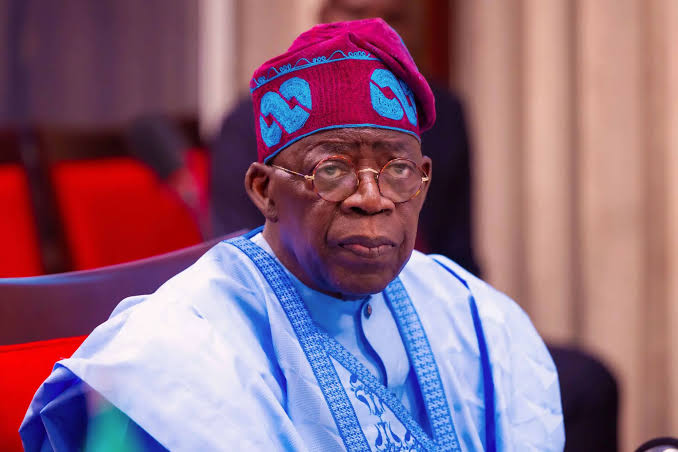ECONOMY

TINUBU: WE’RE USING SUBSIDY SAVINGS TO BUILD ROADS, CREATE JOBS, AND BOOST THE ECONOMY
Where Is the Fuel Subsidy Money Going? Tinubu Says It’s Powering Infrastructure, Jobs, and a Stronger Economy
Ever since President Bola Ahmed Tinubu boldly declared “fuel subsidy is gone” during his 2023 inauguration, Nigerians have had one burning question: Where is all the money going?
Now, the Federal Government has provided some answers—clear and direct. The funds saved from removing petrol subsidies, once a major drain on national resources, are being funneled into infrastructure projects, social programs, and efforts to build a more resilient economy.
Speaking through the Minister of State for Finance, Nkiruka Uzoka-Anite, President Tinubu explained how the government is using the extra cash to tackle long-standing structural issues while investing in Nigeria’s future.
“Since petrol subsidy removal, we have redirected those funds into expanding our social safety nets, improving public transportation, and financing critical infrastructure,” Tinubu said at a national conference in Abuja.
From N9 Billion to Over N1.6 Trillion Shared Monthly
Before subsidy removal, the amount of money available to federal, state, and local governments hovered around ₦9 billion monthly. Since 2023, that figure has jumped to an average of ₦1.6 trillion monthly—a staggering increase. And the President says it's being put to work.
For instance, state governments like Nasarawa have pointed to new roads and infrastructure projects made possible thanks to increased revenue from the federation account.
A Broken System, Now Being Fixed
In 2022 alone, Nigeria spent over ₦4 trillion on fuel subsidies—more than it spent on capital projects. According to Tinubu, this was not just financially unsustainable, but also unfair:
“Subsidies mainly benefited the wealthy, encouraged smuggling, and led to inefficiencies. It was neither fair nor smart,” he said.
By ending subsidies, the government has been able to shift focus toward building schools, fixing roads, supporting businesses, and strengthening the economy—in ways that touch ordinary lives.
Reforming the Tax System and Supporting Businesses
Beyond subsidy savings, Tinubu highlighted efforts to modernize Nigeria’s tax system—making it easier for small businesses to comply, integrating the informal sector, and reducing multiple tax burdens.
New initiatives like the National Credit Guarantee Company are also being rolled out to help small and medium enterprises (SMEs) thrive, boost local production, and increase non-oil exports.
The sectors receiving targeted support include:
Agriculture
Manufacturing
Digital services
Renewable energy
Mining
Creative industries
“We’re laying the foundation for a self-sustaining economy that’s less dependent on oil,” Tinubu said.
Fighting Inflation, Ensuring Accountability
On inflation and currency issues, the President credited the Central Bank’s coordination with fiscal authorities to stabilize the naira and address inflation—especially by fixing food supply challenges.
Transparency is also a key focus. Tinubu’s administration is pushing for open governance using platforms like:
IPPIS (Integrated Payroll and Personnel Information System)
GIFMIS (Government Integrated Financial Management Information System)
The Open Treasury Portal
These tools help track public spending and ensure that government officials are accountable for every naira.
“We must move from opacity to openness—from suspicion to confidence,” Tinubu declared.
Lawmakers Demand Stronger Oversight
Despite these efforts, lawmakers sounded alarms about ongoing challenges.
House Speaker Tajudeen Abbas revealed that over ₦300 billion in public funds flagged by auditors remain unrecovered, calling it unacceptable. Senate President Godswill Akpabio stressed that many agencies ignore legislative summons, warning that this threatens democracy and proper financial oversight.
Both leaders called on the Public Accounts Committees (PACs) to enforce accountability, reminding Nigerians that these bodies are constitutionally empowered to protect public funds.
"This represents a significant development in our ongoing coverage of current events."— Editorial Board









